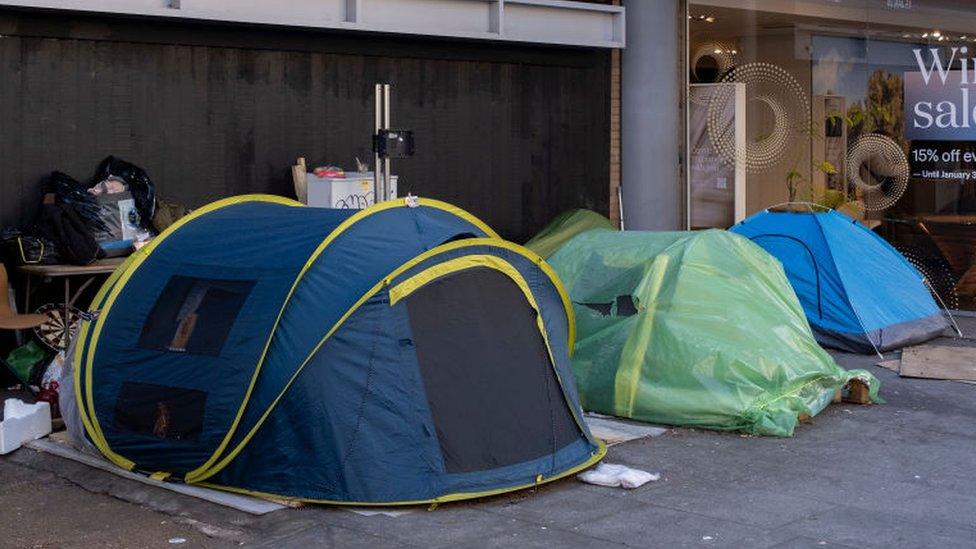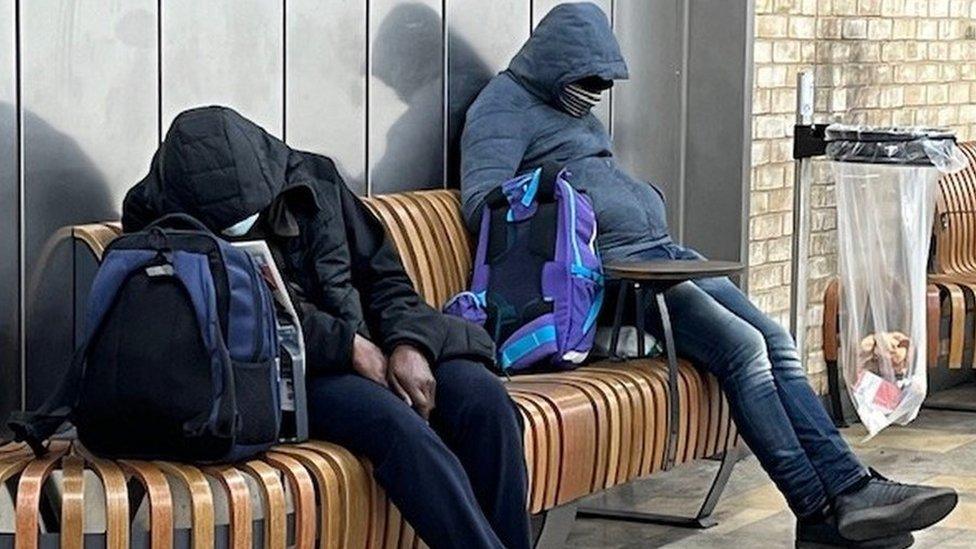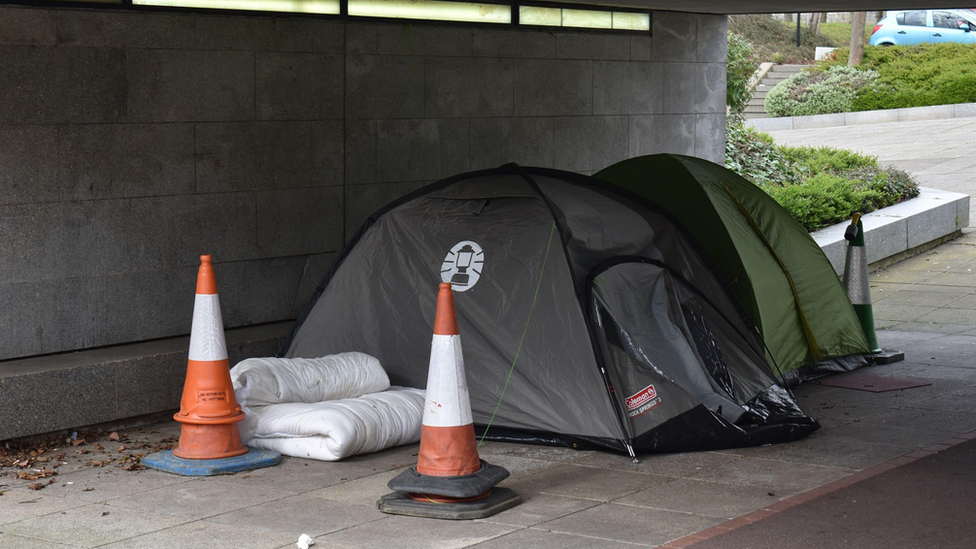Homeless people should not be arrested just if they smell - minister
- Published

Homeless people should not be arrested just because they smell, a minister has said.
A bill in the Commons could criminalise rough sleepers if they cause a nuisance, including "excessive" smells.
More than 10 Conservative MPs are backing changes to ensure action is only taken against people who are begging and not just sleeping rough.
Education Secretary Gillian Keegan said the most important thing was to support people to get off the streets.
Asked by Sky News if people should be arrested if they smell, she said: "No, people should not be arrested just if they smell.
"But of course what we'll be doing is we'll be considering any legislation."
She added: "Of course if somebody is acting aggressively or being a nuisance then that is different."
Ms Keegan said it was important "to get the balance right", saying things like threatening behaviour or aggressive begging near cash points were "not acceptable".
A No 10 spokeswoman said the prime minister agreed with Ms Keegan.
"We are clear that nobody should be criminalised for being homeless and having nowhere to live, but at the same time our legislation has provisions in place which are designed to assist the police with addressing behaviour that could make the public feel unsafe or intimidated," she said.
Measures in the Criminal Justice Bill, which is currently making its way through Parliament, seek to replace the 1824 Vagrancy Act.
The government has promised to repeal the law, which makes begging and rough sleeping a criminal offence.
The new bill would allow police to move on "nuisance" rough sleepers and, if they do not comply, issue a fine or arrest them.
However, critics have argued the definition of nuisance behaviour is too broad and includes things such as causing excessive noise or smells, as well as being threatening or causing damage to property.
Tory MP Bob Blackman has tabled an amendment to the bill which would require the government to issue guidance to councils and police forces about the use of powers in the legislation.
This would include stating that begging or rough sleeping in itself does not amount to unreasonable conduct and that policing "should balance protection of the community with sensitivity to the problems that cause people to engage in begging or sleeping rough".
It says guidance should also include that the powers should not generally be used against people sleeping rough but only for people begging when no other approach is reasonably available.
Conservative former minister Sir Iain Duncan Smith is among 11 Tories who are backing his proposals, along with 21 opposition MPs.
However, according to the Times, external, more than 40 Tory MPs have made it clear they would vote against the government's proposals.
The BBC has been told the government in in discussions with potential rebels over its plans.
The Criminal Justice Bill was introduced to Parliament by Suella Braverman, who branded rough sleeping a "lifestyle choice" when she was home secretary.
Ms Keegan said she did not agree with this, adding: "Normally people have had a lot of hardship before they got to that point."
Liberal Democrat Layla Moran, who led a cross-party campaign to scrap the Vagrancy Act, said the government's "heartless proposals" risked bringing back the act "by the back door".
"The government should listen to their own backbenchers and take a compassionate approach to tackling homelessness, instead of stigmatising and criminalising rough sleepers," she said.
Homelessness charity Crisis urged the home secretary to listen to MPs and "drop these cruel and unnecessary measures".
Related topics
- Published29 February 2024

- Published12 November 2023
